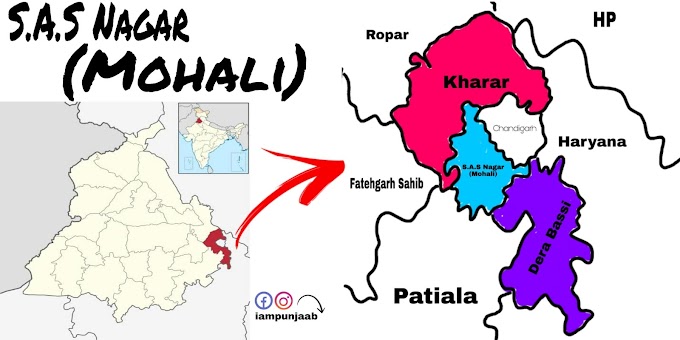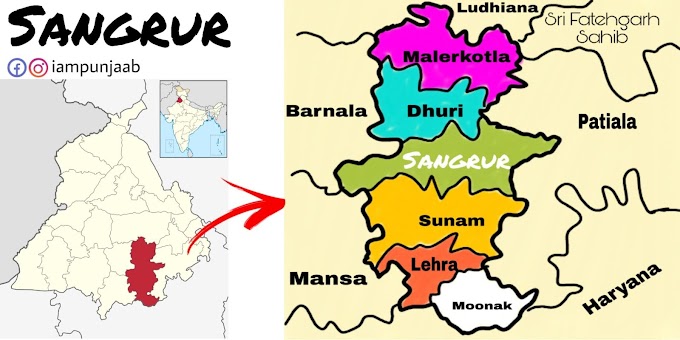The word Punjab means the land of
five rivers. These are the names of five rivers - Sutlej, Ravi, Beas, Chenab,
and Jehlam. Call Punjab the Food Giver of India and it will not be a surprise. It is also India's Dairy Farm
because milk production is high in Punjab. Harappan civilization is one of the
oldest and richest civilizations in the world and was discovered in Punjab. History
has shown that the land of Punjab was under the influence of a powerful empire,
which is why the personality of Punjab is characterized by these empires. One
empire after another was established like Mauryans, Afghans, Mughals, Sikhs,
British etc. which made Punjab a repository of different religions, Punjab
became the leading state in becoming a rich and unique heritage due to its
influence. The partition of 1947 had a profound effect on the geographical size
of the Punjab.The resulting partition divided Punjab into two parts - West
Punjab (In Pakistan) and East Punjab (In India). Eastern Punjab also faced
further partition in India also.
In present times, the
geographical shape of Punjab is like a triangle of mathematics. However, Punjab
has developed and excelled in the field of agriculture and industry. In the
present day, its heritage, magnificent works of art, rich culture and folklore
can be easily traced in its royal cities like Patiala, Kapurthala and Faridkot.
Apart from these, they are also seen at famous pilgrimage sites in Punjab.
Punjab is a land of religious diversity. This holy land has embraced all
religions such as Sikhism, Hinduism, Jainism, Buddhism, Islam, etc. and
enhanced its prestige. Sikhism was founded in Punjab in the 16th century and
emerged as the dominant religion of the Punjabis. Gurdwara Sri Harmandir Sahib
(The Golden Temple) in district Amritsar of Punjab (Majha region), is a holy
place of Sikhs. Throughout the year, people from India and other countries come
to Gurdwara Sahib to enjoy the bliss of the Guru's house. The people of Punjab
are famous at home and abroad for their hospitality, delicious food, beautiful
costumes and interesting festivals.
Punjab has been well served by
various states and neighbors in all four directions, including Jammu and
Kashmir, Haryana, Rajasthan, Himachal Pradesh and Pakistan in the west. There
are mostly three types of weather in Punjab - summer, rainy and winter. The
crop cycle of Punjab also depends on climate change. The main crop in the kharif
season is paddy which is sown in summer and wheat crop which is sown before the
onset of winter, is the main crop of Rabi season. The irrigation of crops in
Punjab is mostly dependent on rainfall and canal water but now a day submersible pumps are used for
irrigation also. Due to climate change in the month of March-April there is
light rainfall and wind is also prevailing. Punjab's climate has proved to be a
major factor in the development of Punjab's economy.











2 Comments
send gifts online same day delivery
ReplyDeletemidnight cakes online
midnight cakes delivery
Well, I am really thankful for all your inputs shared on this matter Get ISO Certification services in Dubai UAE | Apply for ISO 37001,22301,14001 Certification services in Dubai Online
ReplyDelete